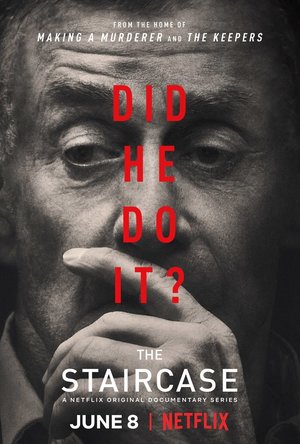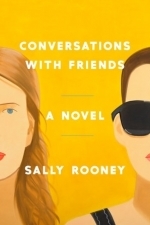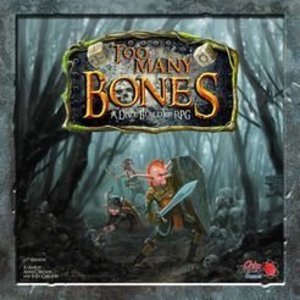
Too Many Bones
Tabletop Game
Too Many Bones comes loaded for bear by breaking into a new genre: the dice-builder RPG. This game...
Boardgames DiceRPGgame
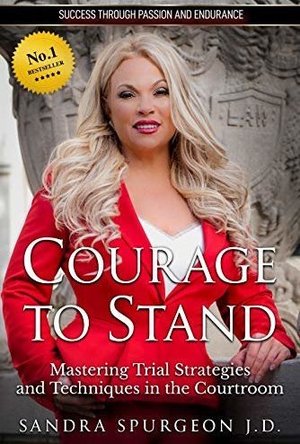
Courage to Stand: Mastering Trial Strategies and Techniques in the Courtroom
Book
#1 National Bestseller on Amazon in SEVEN categories, including Liability Insurance, Law Office...
court law nonfiction non fiction non-fiction courtroom
I do not agree with the main argument of this biography: that William Shakespeare was, in fact, only a pen name for Edward de Vere, the Earl of Oxford. No. I do not agree with this claim, like so many other Shakespeare scholars and lovers because the "facts" put forth are just very thinly stretched ideas and concepts that cannot be proven.
This book, instead of pushing me to think about how this fact could even possibly be true, is more about the life of Edward de Vere and how some of the circumstances in his life would be able to loosely connect to the plays Shakespeare had written. In tying in the plays, Anderson thinks he is making a stronger claim for his argument, but is honestly just trying to connect things that are unalike to "prove" what he is thinking. As an English major, I don't really like that way of thinking much.
Most of what he was trying to argue could have been left out and, instead, just have the appendices left in there. In the approximately sixty pages of the four appendices, he stated what over three hundred pages could not. No, I do not agree with the argument he is making, but it seems like it is stronger and more coherent in the appendix.
I want to point out a specific quotation from the Appendix A on page 381 to make a point about this book. It states: The thesis of this book, the "Oxfordian" proposition that Edward de Vere was Shake-speare, is a theory built on circumstantial evidence. There is no single "smoking gun" document that leads one inexorably to the conclusion that de Vere wrote Hamlet, King Lear, the Sonnets, etc." I understand that it is difficult to try to prove a theory that many argue against (myself included), but basing your argument solely on circumstantial evidence is not the way to go. It makes the argument, at least to me, seem less realistic and, in all honesty, difficult to agree with. If you cannot prove someone is guilty solely based on circumstantial evidence, you should not try to prove a complex argument that a famous playwright was not a real person, but, in fact, a pseudonym for another historical figure around the same time.
The "facts" that de Vere's life has similar qualities to the plays written by Shakespeare leading to the thought that de Vere, himself, is Shakespeare is a stretch, and not a convincing one at that.
Overall, I did not enjoy this book and I did not find it convincing at all. It felt more like a history lesson about the background of Edward de Vere rather than any kind of argument towards the idea that he could have been Shakespeare.
In my heart of hearts, I will always believe that William Shakespeare was, in fact, a real man by the name of William Shakespeare, not some made up name for a man who wanted to keep his private life separate from the public.
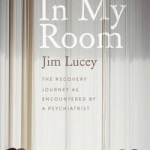
In My Room: The Human Journey as Encountered by a Psychiatrist
Book
'The room is a space for the mind, and a metaphor for the mind at the same time. Most of us will...

Uke101 - Ukulele Lessons, Tracks and Games for Beginners
Music and Education
App
Aloha and welcome to the Uke101 app! The ukulele has a unique sound known throughout the entire...

Electrician Clinic
Education and Reference
App
This collection of 888 training videos will teach you all about what it takes to be an electrician. ...
Ross (3284 KP) rated The Staircase in TV
Jun 28, 2018
The documentary follows the investigation from very early on, through the original trail and subsequent appeals. It still smacks of being quite one-sided (which is natural when the filmmakers are given access to one side of the legal battle and not the other). As with other similar programs, it is somewhat failed as an idea when the burden of formulating a story of what happened and of proof is on the estate, and the defence (by far the more vocal side in the program) only have to cast enough doubt on aspects of those stories to allow a jury to have "reasonable doubt" and therefore a conviction cannot be made.
Once again, this documentary shows that the state will do anything to convict, and once convicted it is very unlikely any appeals would be successful - they cast aspersions over the judge and prosecutors' professional ethics which they won't allow.
This one is rare in that the judge does appear to suggest there was a miscarriage of justice at the end of the final episode.
There is more closure in this story when compared to the likes of Evil Genius and Making a Murderer, but there still remains some doubt over what happened to Kathleen (I have now read there was a theory she was attacked by an owl on the way in to the house!).
Compelling but a little more drawn-out than its peers.
ClareR (6062 KP) rated Conversations With Friends in Books
Oct 28, 2019
Frances seems to be a very unapproachable person. She doesn’t give OF herself, but expects everyone to respond towards her with love. Which must be hard work. Her youth really comes across when she talks about never wanting to work and not wanting or needing money - and then later her father stops paying her allowance. She realises then just what having no money is really like. There are other hints at her mental state. She talks about self-harming, and she seems reluctant to talk to either Bobbi or Nick about her feelings for them (my theory is that her parents separation is responsible for this). She’s not a particularly likeable character, and writing this has made me realise that I actually seem to like books where the main characters just aren’t particularly nice. Perhaps I just want to see why people are like this?
Anyway, I listened to this on Audible as I read along (when I could), and I really liked the narrator, Aoife McMahon. She’s engaging, has a really nice voice and there was never any doubt in my mind that she was a good choice. She really made this book for me.
I can see why there was such a buzz around this book when it first came out, because I enjoyed it too!

Emotions from I Can Do Apps
Education
App
Emotions from I Can Do Apps is an educational tool designed in collaboration with a Speech Language...

MathX – Calculator
Education and Productivity
App
MathX brings the power of a graphic and scientific calculator on your iPhone and iPad. It can solve...

